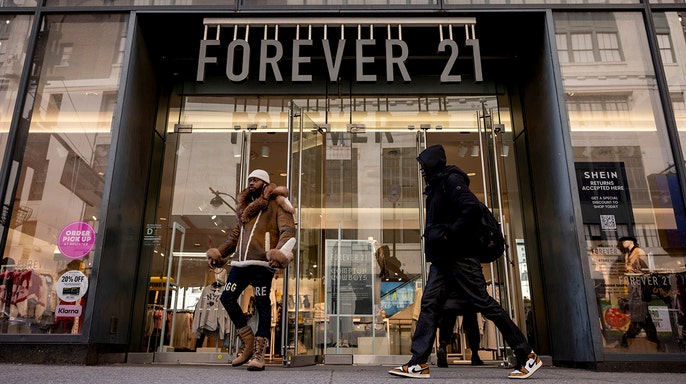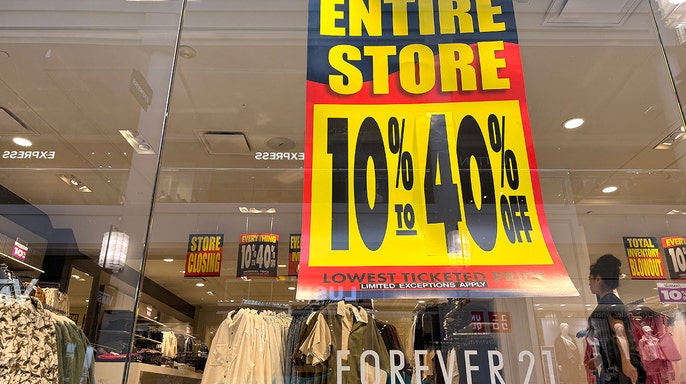why Forever 21 filed for bankruptcy again, how Shein and dying malls fueled its downfall, and what it means for retail investors. Get the latest updates on Forever21’s liquidation and market trends.
Forever 21 Files Chapter 11 Again: What Went Wrong?
Forever 21, the once-thriving fast-fashion giant, is closing stores and liquidating inventory after filing for Chapter 11 bankruptcy on March 17, 2025. This marks its second bankruptcy in six years, leaving just 350 U.S. stores standing. The brand, known for trendy $5 crop tops and mall dominance, blames sinking foot traffic, online rivals like Shein and Temu, and the slow death of American malls.
The filing reveals a debt load between $1 billion and $10 billion, with liquidation sales set to begin immediately. Authentic Brands Group, which owns Forever21’s intellectual property, claims the bankruptcy won’t kill the brand globally—but analysts aren’t so sure.
Shein, Temu, and Amazon Crushed Forever 21’s Comeback
Forever 21’s 2019 bankruptcy was supposed to be a reset. It closed 150 stores, pivoted to e-commerce, and even partnered with Shein in 2023 for a controversial pop-up collab. But the move backfired. Shoppers flocked to Shein’s $3 tank tops instead, while Temu’s algorithm-driven deals lured bargain hunters away from malls.
“Shein didn’t just steal customers—it changed expectations,” says retail analyst Maria Chen. “Forever21 couldn’t keep up with ultra-fast production cycles or TikTok trends.” Meanwhile, mall traffic dropped 40% since 2020, per Coresight Research. With most Forever21 stores anchored in struggling shopping centers, the brand became a casualty of the “retail apocalypse.”
Mall Landlords Face Another Blow
Simon Property Group and Brookfield Asset Management, which co-own Forever21’s parent company, now face empty storefronts in prime mall locations. Over 200 Forever 21 closures are expected, adding to the 1,200 U.S. mall vacancies reported in 2024.
“Malls are ghost towns,” says Ohio-based shopper Lisa Tran. “Teen gangs loiter, parking’s a nightmare, and why bother when Shein delivers in two days?” Safety concerns and rising online sales have pushed retailers like Party City and Bed Bath & Beyond to ditch malls entirely.
Investor Takeaways: Pros, Cons, and Wild Cards
PROS
- Fire Sales: Liquidation events could spike short-term revenue.
- Real Estate Opportunities: Vacant mall spaces may convert to apartments or warehouses.
- Authentic Brands’ Lifeline: Forever21’s IP could pivot to wholesale or social media drops.
CONS
- Retail Domino Effect: Bankruptcies scare lenders, raising borrowing costs for mall-based chains.
- Shein’s Monopoly Risk: The Chinese giant now holds 30% of U.S. fast-fashion sales.
- Consumer Sentiment: Gen Z associates malls with “Boomer vibes,” hurting revival efforts.
4 Latest News Updates Shaping the Retail Market
- Shein Eyes IPO Despite U.S. Scrutiny (Bloomberg, March 20, 2025)
Shein plans a $66 billion IPO but faces hurdles over forced labor allegations and tariff loopholes. - Simon Property Bets on AI-Powered Stores (Retail Dive, March 18, 2025)
Simon tests cashier-less tech and AR fitting rooms to save anchor stores. - Temu Slapped with Privacy Lawsuits (CNBC, March 15, 2025)
Users sue Temu for allegedly selling data to China—a potential win for U.S. retailers. - Mall-to-Housing Projects Surge 200% (The Wall Street Journal, March 12, 2025)
Developers convert dead malls into affordable housing, targeting urban renters.
Will Forever21 Survive? Experts Weigh In
Authentic Brands CEO Jamie Salter admits buying Forever21 was his “biggest mistake,” but Global President Jarrod Weber insists the brand will adapt: “We’re modernizing distribution and doubling down on TikTok influencers.” Skeptics note Forever21’s website traffic fell 60% YoY, while Shein’s app downloads hit 20 million monthly.
For malls, the crisis is existential. “Either innovate or die,” warns ICSC CEO Tom McGee. Simon Property’s shares rose 3.5% post-bankruptcy—investors are betting on redevelopment, not retail.
The Bottom Line
Forever21’s closing saga is a warning: adapt or collapse. Shein and Temu won’t slow down, and malls must ditch arcades for apartments. For investors, the play isn’t fast fashion—it’s AI, logistics, and whatever comes after TikTok.
Got thoughts on the Forever21 shutdown? Hit us up @RetailWatch—we’re forever curious.
External Links: Shein’s IPO News, Simon Property AI Tech, Temu Lawsuits, Mall Housing Projects









